N.Y.C. & Rockfall
1937—1965
Upon emigration to the United States in September 1937, Kapp’s intellectual project unfolded as instructor of economics at New York University (1937-1942) and Columbia University (1942-1945), as assistant professor at Wesleyan University (1946-1950), and as associate and full professor at City University of New York (CUNY) - Brooklyn (1950-1965).
The Frankfurt School’s newly reconstituted International Institute of Social Research at Columbia University provided the Kapps with institutional and financial support. This reflected Kapp’s continuing intellectual affinity with important currents of neo-Marxism. Yet, this period also witnessed the beginning of his life-long contribution to the intellectual movement of American Institutionalism. Article publications on economic planning elaborating on his dissertation argue that social provisioning for human needs based on in-kind calculations is an indispensable method for societal development in capitalism and socialism.
In harmony with these ideas and influences, the early 1940s witnessed the formulation of Kapp’s intellectual project of social economics, leading to the elaboration of theories of social costs and benefits, social value, social knowledge, social-ecological indicators, social minima, and social development. (Kapp 2015)
On the one hand, the formulation of this project is characteristic of the social and holistic orientation of American Institutionalism, which continued Veblen’s critique of neoclassical economics (Gruchy 1947). Yet, it is also a fusion with concerns emerging from Kapp’s European intellectual background. That is, Kapp viewed his work as countering the (neo-)liberal economics of Ludwig von Mises and Friedrich von Hayek by focusing on the irrationalities inherent in capitalist rationality, which is characteristic of the Frankfurt School’s “post-Weberian” intellectual project. (Berger 2015)
“The Social Costs of Private Enterprise” (1950) made Kapp widely known as a leading institutional economist, establishing his reputation as forecaster of today’s environmental crisis. This book further elaborated his dissertation’s main argument with supporting empirical data on the vast scope of social and ecological damages arising from production guided purely by monetary market calculus. Chapters include environmental effects, such as air and water pollution, premature resource depletion, harm to human beings, social inefficiencies from market power, and social waste from consumption, production, and technological retardation. The concluding chapter argues for a return to the philosophical foundations of economics, a broadening of conceptual foundations, and a transcending of the horizon of contemporary society towards a social economy.
“The Social Costs of Private Enterprise” (1950) made Kapp widely known as a leading institutional economist, establishing his reputation as forecaster of today’s environmental crisis. This book further elaborated his dissertation’s main argument with supporting empirical data on the vast scope of social and ecological damages arising from production guided purely by monetary market calculus. Chapters include environmental effects, such as air and water pollution, premature resource depletion, harm to human beings, social inefficiencies from market power, and social waste from consumption, production, and technological retardation. The concluding chapter argues for a return to the philosophical foundations of economics, a broadening of conceptual foundations, and a transcending of the horizon of contemporary society towards a social economy.

 Manhattan, NYC: Kapp’s home 1937-1945
Manhattan, NYC: Kapp’s home 1937-1945 Kapp’s argument on social costs increasingly blended with American Institutionalism’s critique of the social waste of business enterprise and proposals for social controls. The changed title of the second edition “The Social Costs of Business Enterprise” (1963) reflects this proximity to Thorstein Veblen’s “The Theory of Business Enterprise” (1904). Both Kapp and Veblen view the cause of foregone human flourishing in the principle of investment for profits in charge of technology and production of social use values. By following in the footsteps of Veblen’s but also Marx’s work on unnecessary premature resource depletion in capitalism, Kapp strengthens institutional economics’ focus on environment and ecology by employing interdisciplinary concepts, such as critical zones, ecological balances, and the notion of sustainable yield.
The fusion of Kapp’s intellectual project of social economics with the intellectual project of American Institutionalism was achieved in “The Foundations of Institution Economics” (Kapp 2011). The latter was initially intended as teaching material and the promulgation of institutional economics in an academia increasingly dominated by neoclassical economics (cf. Berger/Steppacher 2011). Kapp’s publications on teaching economics and the history of economic thought argued for a holistic perspective of economy embedded in nature, society and culture.
References ︎︎︎
The fusion of Kapp’s intellectual project of social economics with the intellectual project of American Institutionalism was achieved in “The Foundations of Institution Economics” (Kapp 2011). The latter was initially intended as teaching material and the promulgation of institutional economics in an academia increasingly dominated by neoclassical economics (cf. Berger/Steppacher 2011). Kapp’s publications on teaching economics and the history of economic thought argued for a holistic perspective of economy embedded in nature, society and culture.
References ︎︎︎
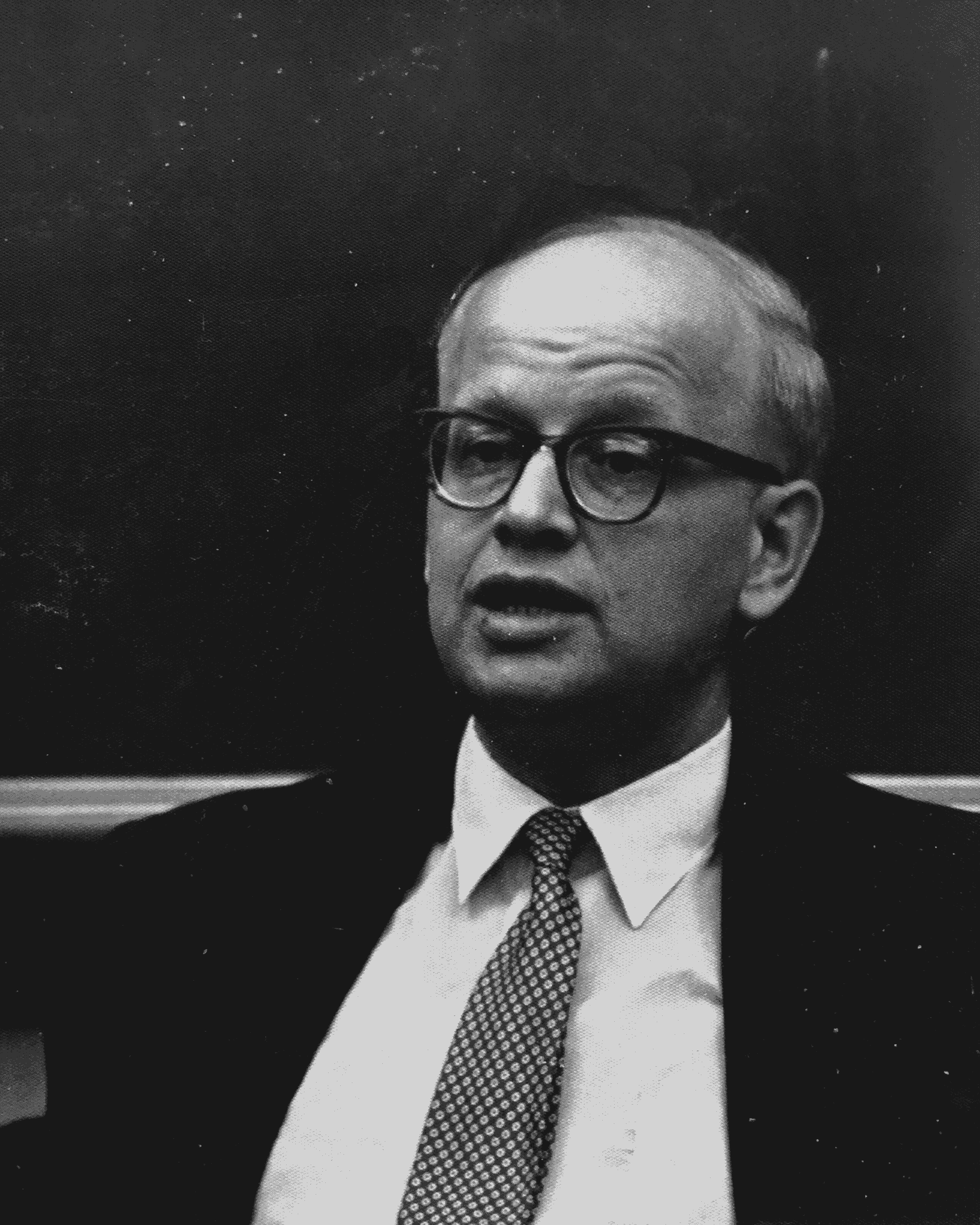
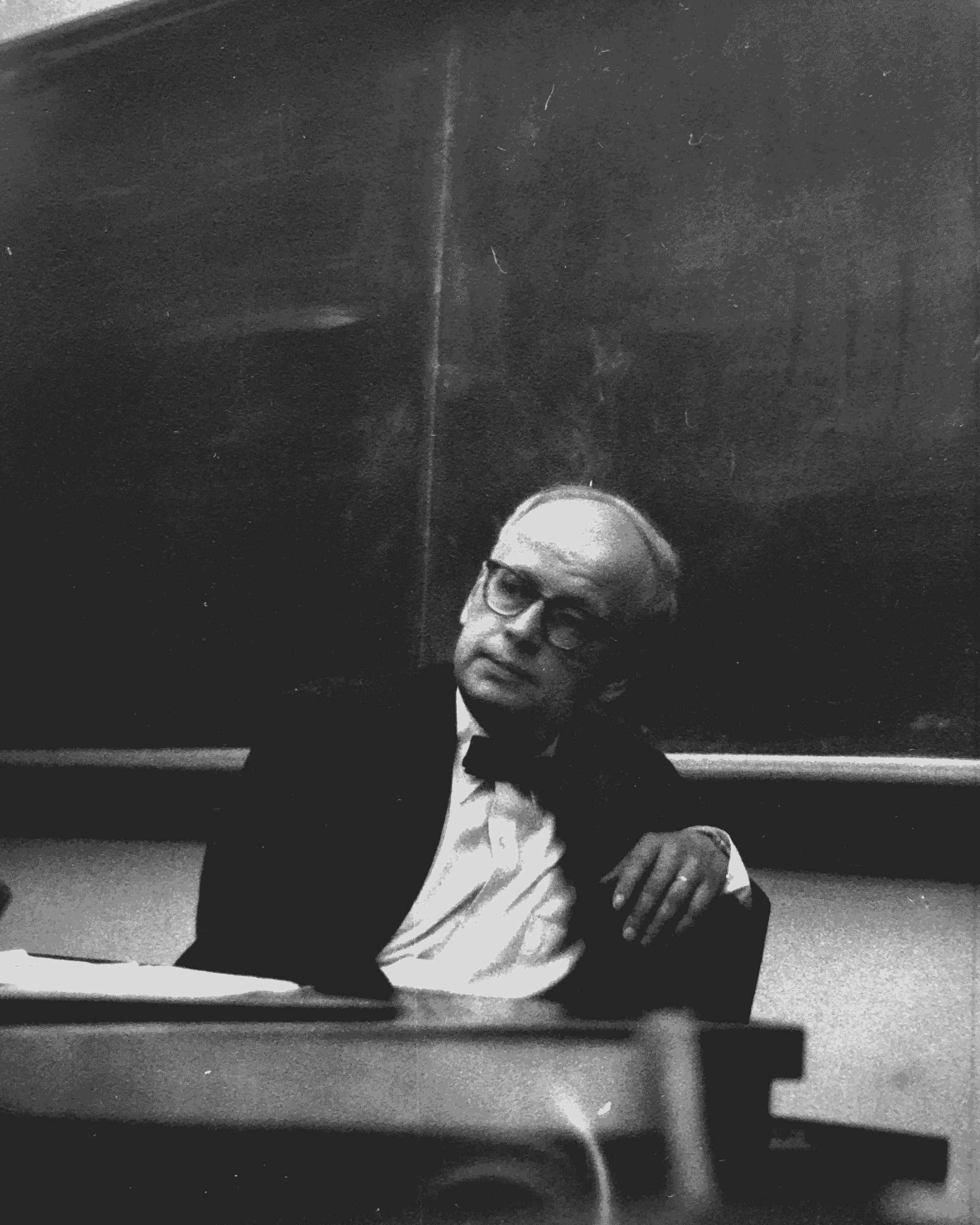
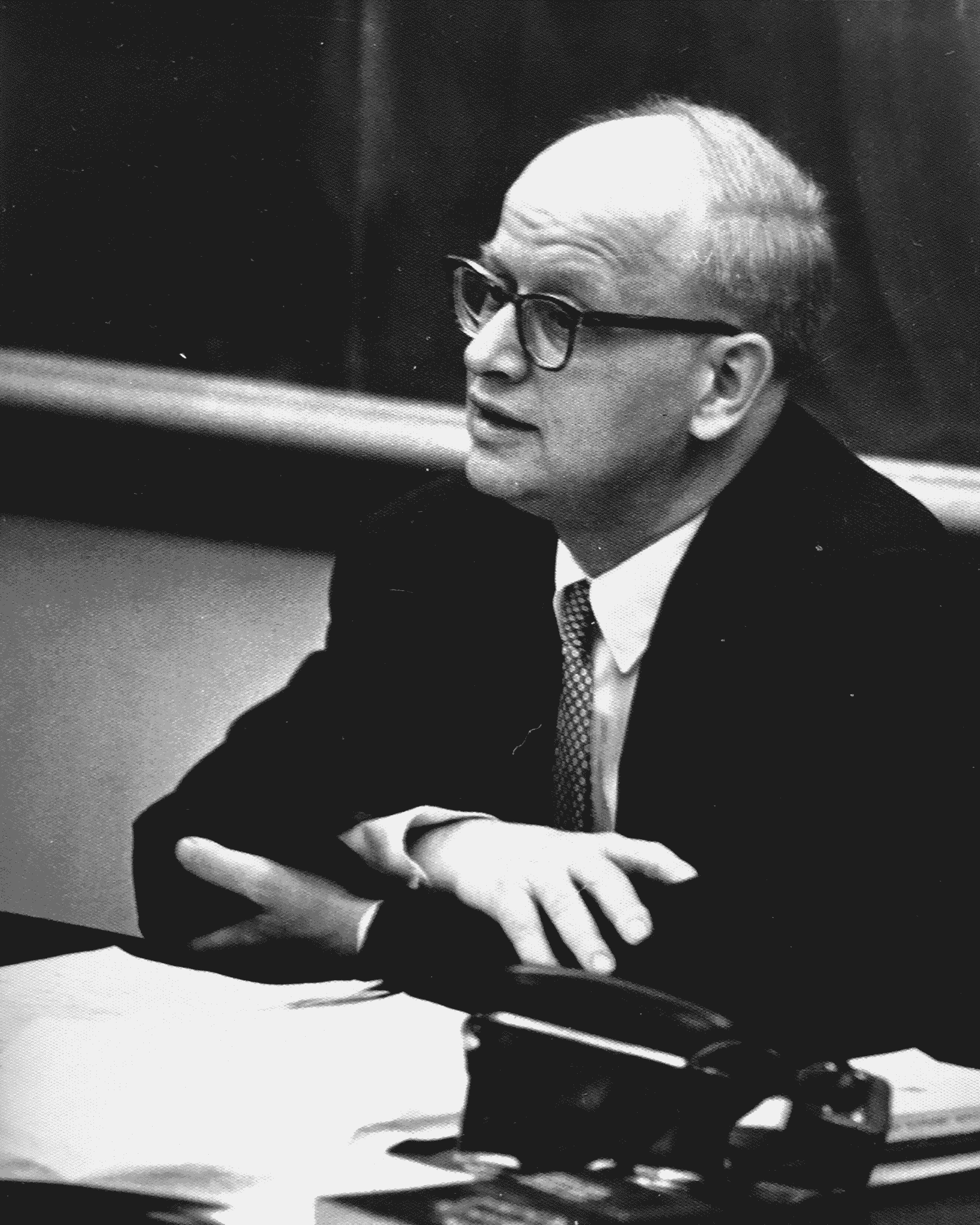
at City University of New York, Brooklyn College
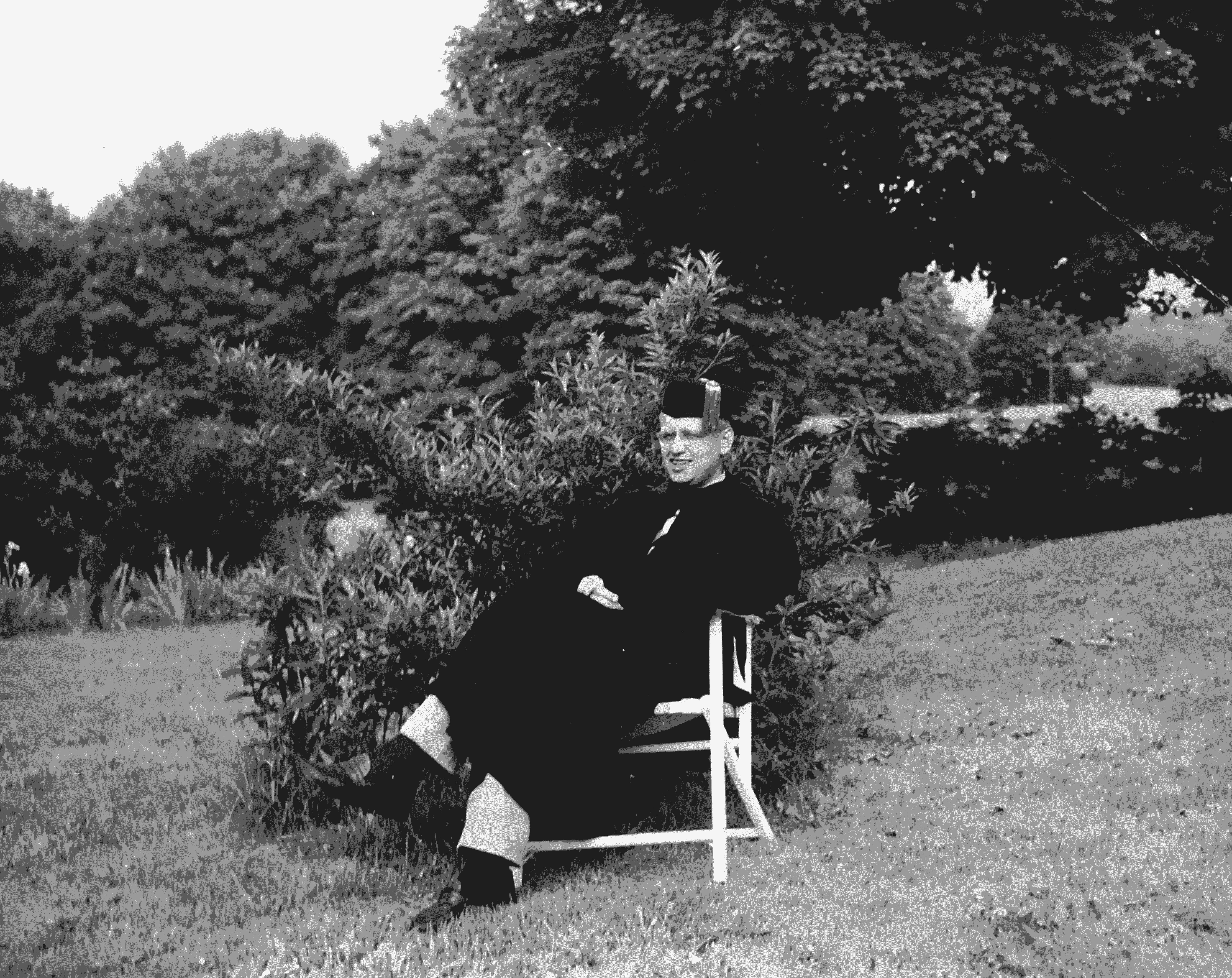
assistant professor (since 1946) at Wesleyan University, Middleton, CT


Book cover of Kapp’s main work, published in 1950
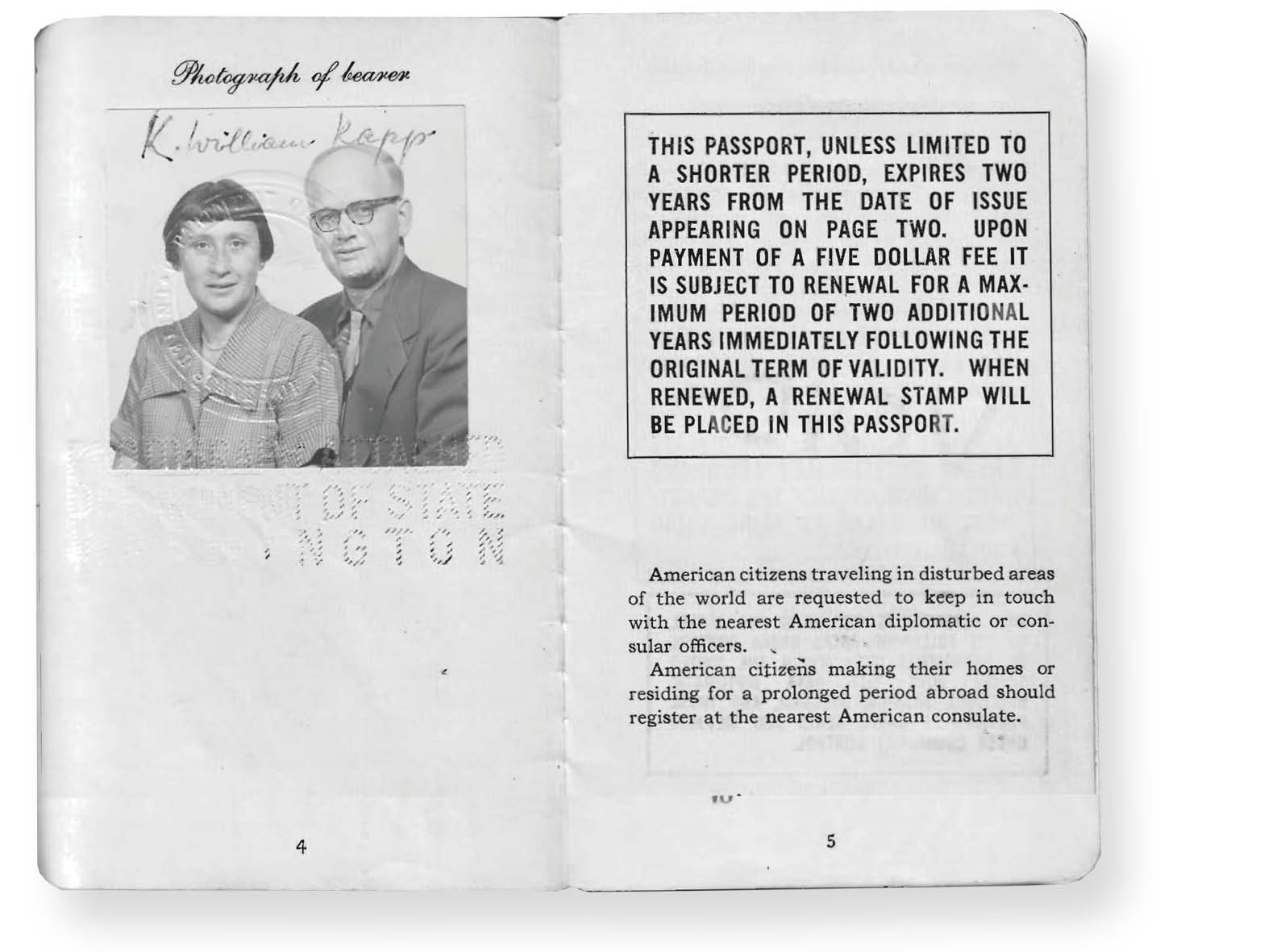
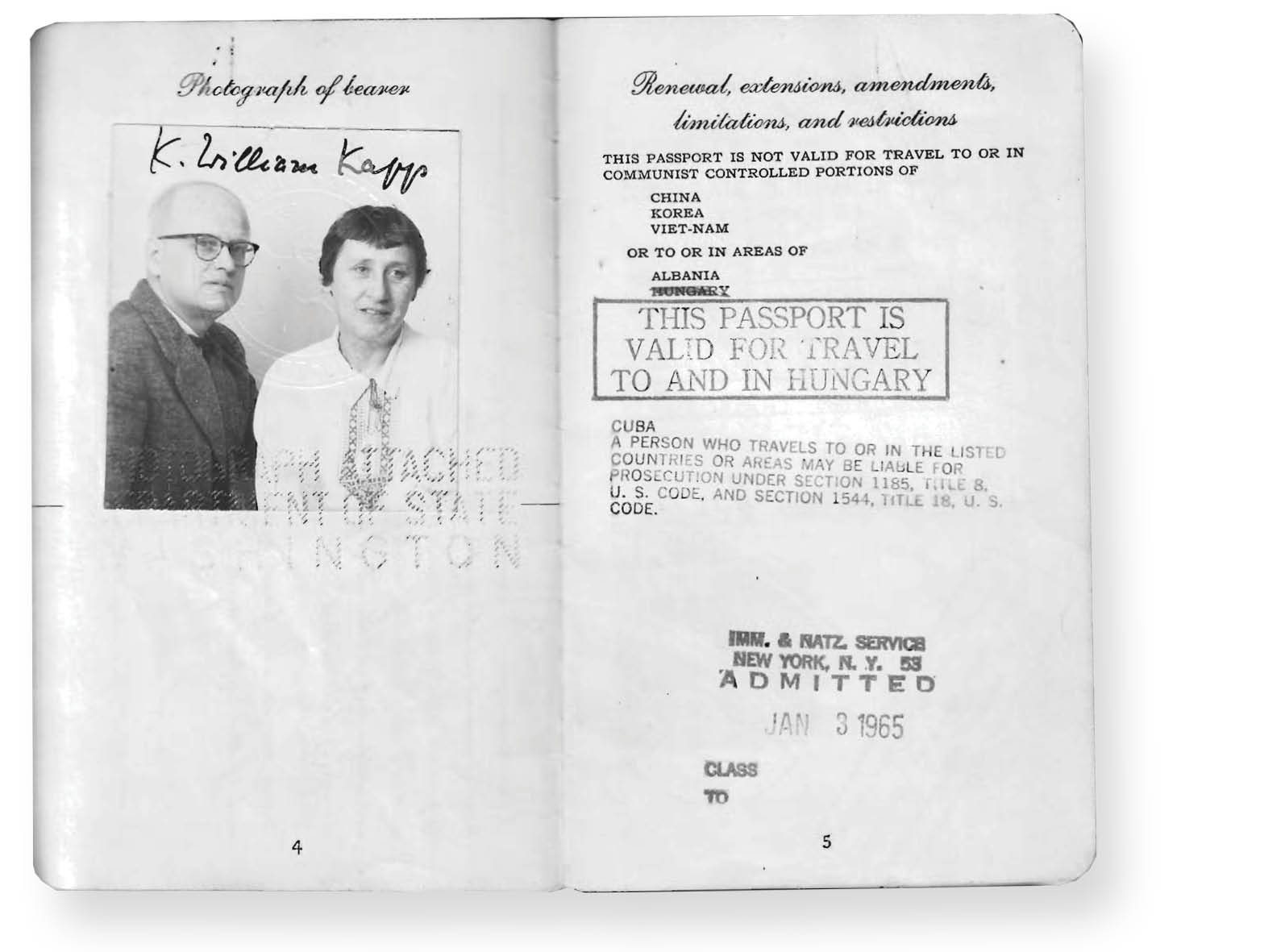
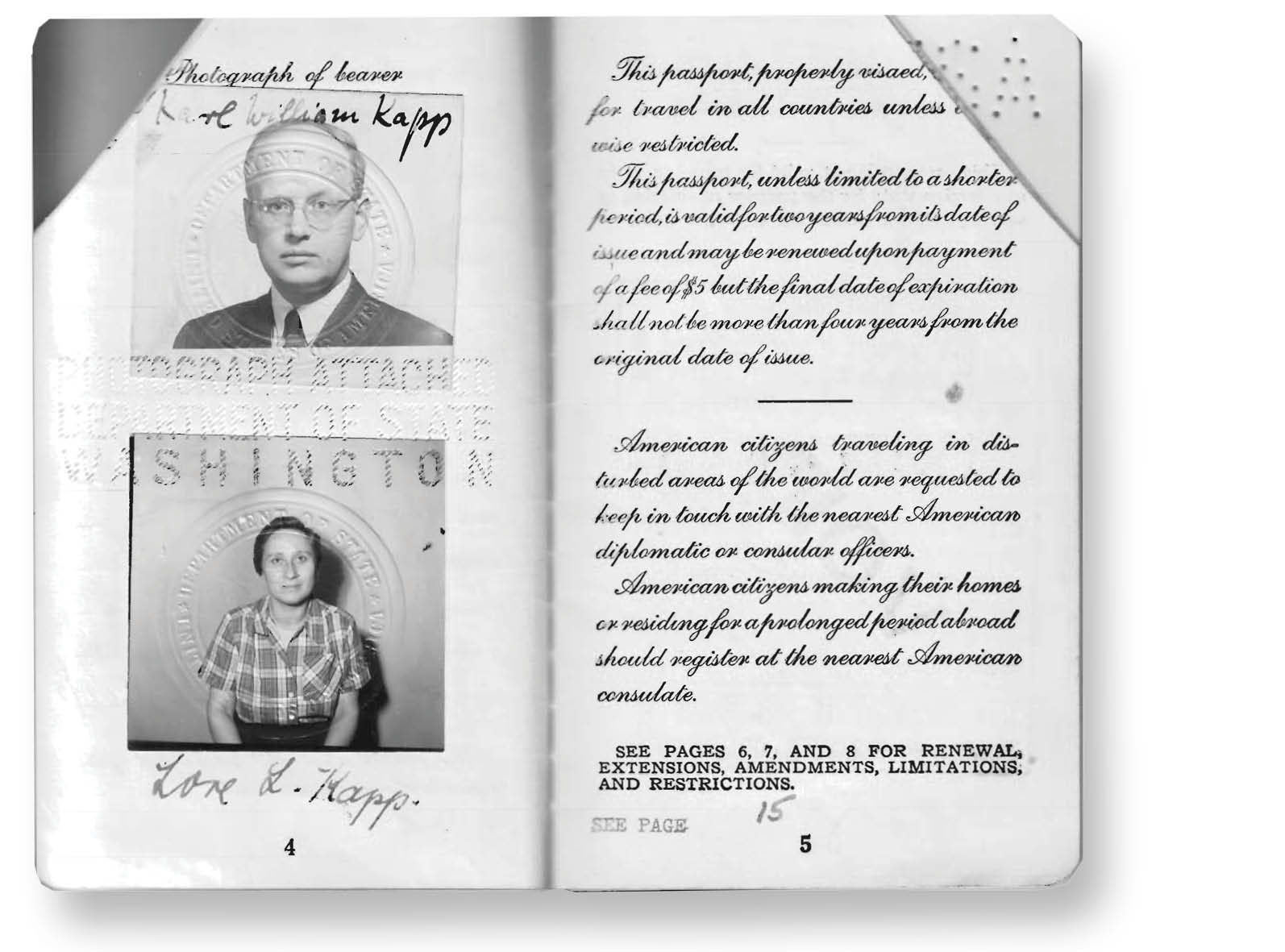
The Kapps as US citizens


as instructor of economics at New York University
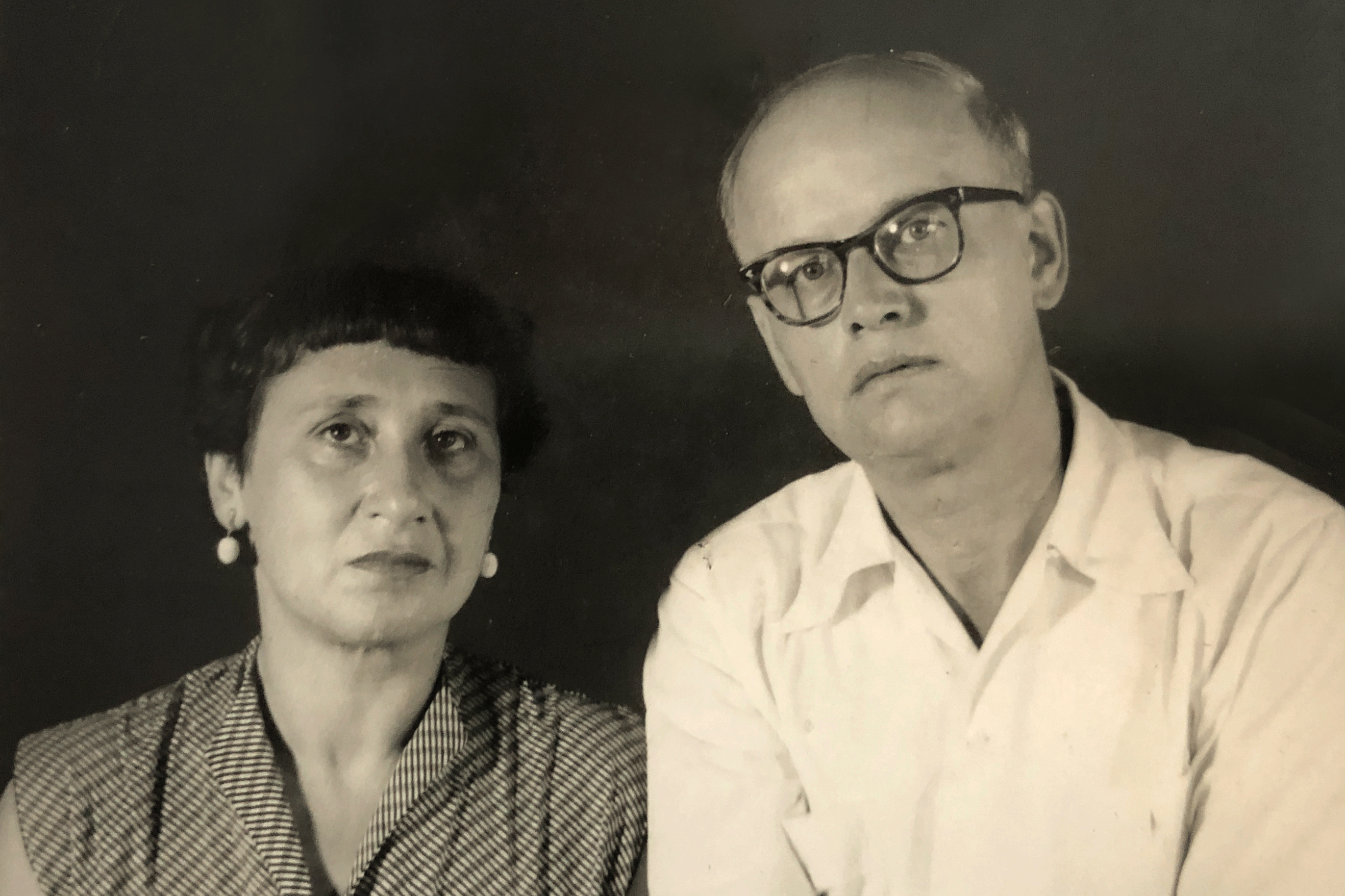
The Kapps ca. 1955

with colleagues at Wesleyan University, CT



The Kapp residence in Rockfall, CT since 1946

On a swing
